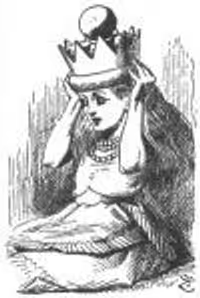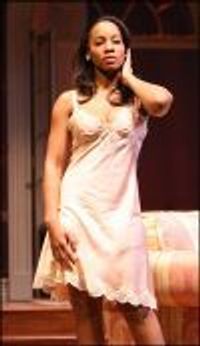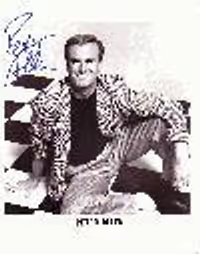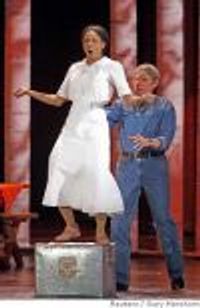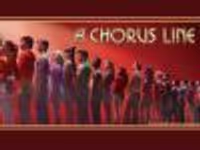Shuffle Along previews
#575Shuffle Along previews
Posted: 4/4/16 at 11:23pm
Caught the show tonight. And yes the playbill cover has returned to the original logo. So as it turns out, it's the tacky playbill with the legs on the cover that is going to be the collectors item!
Count me in the group that found it more impressive and admirable than something I loved. It's an artistic work put together by great artists, and yet I never truly became emotionally invested, and so I'm sad to say it left me at arms length. I understand from some people there tonight, that there were a number of new changes put in today. I of course cannot tell you exactly what they are, but I will say that there was no song in the second act called "Its Getting Dark on Old Broadway," so that may have been cut.
The cast is top notch, and yes indeed, good luck finding a replacement for Audra who can sing coloratura, be both funny and compelling, and tap dance! The production values are all first rate as well. It looks like no expense has been spared on the show.
I suspect this might win Tony awards for choreography and maybe costumes, and I think it will get nominated for a bunch others. An interesting history lesson, but at the end of the day, I felt it was more concerned with telling us history, then giving us a really great story.
#576Shuffle Along previews
Posted: 4/4/16 at 11:39pm
In an article in yesterday's Newsday, George Wolfe said that the summer replacement for Audra "will be very exciting."
theatreguy12
Broadway Star Joined: 4/20/15
#577Shuffle Along previews
Posted: 4/4/16 at 11:47pm
I actually saw a nice blending of history and story. I thought it was magnificent on every level.
Not sure how the critics will respond, but when I see a show I really like, the opinions of the critics remain simply that. Their opinions. It takes nothing away from the pure personal joy of seeing something this special. Their critiques in a few weeks (esp. if they aren't positive) will not change my mind about what I just saw.
The talent up their is unbelievable and the staging is exquisite.
#578Shuffle Along previews
Posted: 4/4/16 at 11:59pm
Yeah I mean there is a lot of magnificent things about the show- it's so admirable In its skill and professionalism-- but it just never grabbed my heart or left me breathless - and for me, I need that when I go to the theatre.
#579Shuffle Along previews
Posted: 4/5/16 at 1:47am
I would rather those "contextualizations" come from another African-American critic rather than from a gay white man, especially since he is being played as a bitchy gay white man.
The politics and aesthetics at that late point in the show are too muddled to make sense.
With all due respect, would you like George Wolfe to rewrite history to make you more comfortable? Because, while your point about how Van Vechten is portrayed is fair game, there's no denying that white men were the ones leveling the criticisms depicted in the show, Van Vechten and H.L. Mencken among them.
Furthermore, the fact that the criticisms came from white male critics is exactly what the show is examining. In trying to assess SHUFFLE ALONG's place in the historical theatrical cannon, it was white men who claimed authority over how African-American culture "should" be portrayed. The same white men who labeled the original production as racist used those judgments to marginalize and minimize the work of black artists.
If this topic is of continued interest, I highly recommend this selection from a book called CARL VAN VECHTEN AND THE HARLEM RENAISSANCE that examines Van Vechten's complicated engagement with blackness over the course of his career.
https://yalepress.files.wordpress.com/2012/06/bernard-excerpt.pdf
Tony Kushner: You can sing it at my funeral.
#580Shuffle Along previews
Posted: 4/5/16 at 6:22am
Okay somethingwicked- I am totally baffled by your post above. Who is the white critic? Is that the "buzz buzz" number that Brooks does? As I stated in my post there wasn't a song in the second act called "Getting Dark on Old Broadway" last night so maybe that plot point and white critic character has been cut. As it played last night, the buzz buzz number was more about the rivalry of the two partnerships. Brooks had some dialogue about how the original production presented stereotypes but there wasn't a song about it and I didn't get that he was playing one specific "white critic."
But to your other point, yes there were certain plot points I wish had been more fictionalized, because they would've made for more compelling and perhaps emotionally driven storytelling. I, for example, had no connection to Florence Mills. The number where Lottie teaches her how to sing was cute, but the character entered so late, she didn't feel part of the emotional story. Even if it wasn't the gospel truth, if the character had been introduced in Act 1 as part of the ensemble of the original production and then we saw her work her way up to become a star, who eventually upstaged the leading lady- it would have been more compelling.
I think, frankly, what gets a bit in the way here with this production, is that it's almost trying to be a musical documentary. And the best musicals understand that, like GYPSY, a "musical fable", some fictionalizing is usually essential to telling a good story that hooks an audience.
#581Shuffle Along previews
Posted: 4/5/16 at 8:28am
>I am totally baffled by your post above. Who is the white critic? Is that the "buzz buzz" number that Brooks does?<
No, it's the penultimate number in the show. The ensemble is seated in a line of chairs upstage (in minstrelsy style). Brooks' character talks about the failed attempts to revive Shuffle Along in 1933 and 1952, and relegates the original 1921 Shuffle Along to the dustbin of history.
I think SomethingWicked's post really does address the power of what Wolfe is doing here. Wolfe also said the following in an American Theatre interview and I think it is apropos: "Theatre is incredibly fragile. Unless the right people write about it, it becomes somebody’s distant memory...You make a decision to tell a story, and you tell that story as ferociously as you possibly can. What happens after that, happens after that. And all the crap that someone who wrote a bad book, or someone who wrote a blog explaining away a piece of culture, gets blown up in the process. But you don’t think about those people when you’re doing the work."
On the subject of Florence Mills, I think given that the show has five major principals with their intersecting stories, there isn't room enough to explore Mills' character. You hit on the reason why she is there. She emerges as a cast replacement and Lottie Gee takes her under her wing, but then watches on as Florence's fame soon eclipses her own. Florence isn't there because the show suddenly needs to tell her life story. It would be like hoping Act Two of Gypsy explores what happens to Tulsa.
#582Shuffle Along previews
Posted: 4/5/16 at 9:18am
Thanks smaxie-then yes, that number is in the show still, but it's possible it's been shortened a bit.
And in the case of Florence, I maintain that if it's important to the authors to tell her story through to her death, then they should introduce the character in act one. If the point is just to show that Lottie takes under her wing, and then is upstaged by her fame, that is all accomplished in that single number and they could trim the rest of her part and we would t miss it.
#583Shuffle Along previews
Posted: 4/5/16 at 9:54am
But as cited in the dialogue, Florence's death is the occasion that brings the estranged five principals back together, leading into the epilogue. I think with the two scenes Florence is in, Wolfe accomplishes a lot. He also establishes that she burned brightly and worked herself to death. I'm not sure what more is needed, short of the show becoming The Florence Mills Story.
#584Shuffle Along previews
Posted: 4/5/16 at 10:11am
Something Wicked--I'm familiar with the life and work of Carl Van Vechten, and I'm not asking Wolfe to rewrite history. I'm also very familiar with the history of blackface and blacks-in-blackface. I'm wondering why Wolfe would choose to end the show with a white critic of blacks-in-blackface (who is introduced late in the show so audience members like Queen Alice are confused as to who he is) rather than any of a number of black critics of blackface and blacks-in-blackface, most notably the NAACP, which later launched a boycott of Amos 'n' Andy in 1950. The NAACP might not have addressed Shuffle Along itself, but the change in their attitude toward blackface over thirty years would have been more involving to the audience, since the first act shows us how the four writers of Shuffle met at an NAACP event in 1920.
At any rate, I'd rather have another big emotional 11 o'clock number for Stokes than several uninvolving numbers for Brooks.
And I agree with Queen Alice that the Florence Mills story also didn't need to come back in Act Two. Audra coaching Florence to stardom is a satisfying one-act play unto itself. (I will never forget the journey though pride/jealousy/alarm/sadness/acceptance in Audra's eyes as she watch Florence flower.)
All I care about at the end of the second act is those four men and Audra, not Florence Mills, not Josephine Baker, and certainly not Carl Van Vechten.
#585Shuffle Along previews
Posted: 4/5/16 at 10:40am
Perhaps a solution would have been to combine the Florence Mills character with the Gertrude character the actress plays in the first act. That's the kind of 'fictionalizing' for dramatic purpose that I think you can forgive. As they are now though, they are two small parts looking for a character arc.
But I tend to agree with PalJoey -- they just still have 'too much' going on in Act 2, when, regardless of how interesting or important the history is, the emotional center of the story which is this friendship between the four leads isn't making the impact it should.
#586Shuffle Along previews
Posted: 4/5/16 at 10:46am
I would argue Wolfe's intent seems to be to present history without any fictionalization. The production, as it stands, is nearly a living documentary, which I think is effective and unique, and the focus is centrally on Shuffle Along and not its creators or star, though there is obvious intersection.
To contrast this with Hamilton: Wolfe's focus is on the history with characterization and relationship seconday; Miranda's focus is on the latter and makes (sometimes large) deviations from historical record.
#587Shuffle Along previews
Posted: 4/5/16 at 11:00am
That may be so Kad. And it is unique and interesting, but for me it ultimately was no more emotionally involving than an A&E documentary, and that left me cold. I think the danger in that approach is that most audiences want that emotional connection to story and character. I think Wolfe has created something beautiful and lofty but also aloof.
#588Shuffle Along previews
Posted: 4/5/16 at 1:33pm
somethingwicked, thank you very much for posting the link to that book excerpt. Just read it. Will keep it in mind this evening!
neonlightsxo
Broadway Legend Joined: 7/29/08
#589Shuffle Along previews
Posted: 4/5/16 at 1:37pm
"All I care about at the end of the second act is those four men and Audra, not Florence Mills, not Josephine Baker, and certainly not Carl Van Vechten."
Agreed again. Clearly we saw the same show, though it's very interesting to hear everyone else's perspectives.
#590Shuffle Along previews
Posted: 4/5/16 at 3:28pm
Queen, Cad, you are both making great points. At the Saturday matinee I was flanked on one side by a black jazz musician who was caught up in the history and had his own additional bits of information to add to what he just saw. He was very happy to see the story being told. On the other side I had a group of matinee ladies who were all about the great dancing and how talented the company was. There was no in between of anyone's heart being broken or touched. It was all pretty technical admiration. Although I have to say the Audra/Brandon scenes were pretty rich for me. I can take my theater either way just as long at it is Theatrical - something unique to the stage. Shuffle had it all for me. Cant believe a year ago I was being starved by The Visit and It Shoulda Been You and now I'm enjoying an embarrassment of riches in Hamilton and Shuffle Along
#591Shuffle Along previews
Posted: 4/5/16 at 3:32pm
Saw the show the night before it went dark for a few days. Echoing what most have said, the book is a little scattered. With that said, I would pay for another ticket at face value again to watch Audra sing "Memories of You" with such passion and vocal prowess as I witnessed. With her performance(and the rest of the cast of course) and the terrific choreography, it was truly a marvel to behold.
#593Shuffle Along previews
Posted: 4/5/16 at 4:15pm
What I found most moving about the show was watching such prominent African-American artists pay tribute to the pioneers who kicked down the doors for them only to essentially be erased from history. I think that active engagement with history is at the very heart of what George Wolfe's trying to explore.
When the full cast photo of the original production came up at the very end, I instantly found myself welling up in tears.
I do agree with the points here about Florence Mills feeling shoehorned into the story. Though I found Adrienne Warren terrific in the role, all of her material could have easily been cut to further focus on the primary characters while still giving a passing mention to Mills getting her start in SHUFFLE ALONG.
Tony Kushner: You can sing it at my funeral.
#594Shuffle Along previews
Posted: 4/6/16 at 1:48am
Saw it last night (Teusday). Run time was just about 2 hours and 45 minutes. I walked out at 10:55. Yes, the original Playbills are still back with the really nice insert. I actually grabbed a few extra since the one they gave me got damaged. Still no merch but the ushers were wearing show pins. When you enter you are told that if you leave your seat during the performance you will not ne allowed to go back to your seat until intermission.
Overall I enjoyed the show. Act one is very tap heavy. One time, at least, that I feel it wasn't really needed. (Black Keys number). Glover has an aggressive style of tap dancing. I am not a tap historian/expert but, for me, his style did mot work for all of the numbers. Or maybe because there was so much of it. With that said, his choreography is magnificent. Most notably the a capella number with the suitcases. It left me breathless. Every number was choreographed and danced beautifully although for some reason at a point felt repetitive. And then Wild About Harry happens and it felt more traditional. Thinking back, as I type, I guess what were the "actual show numbers" were more traditional so by the time Wild About Harry happened, the energy level seemed to lower, but it was still a nice number to end the act.
The costumes were wonderful and the sets were very nice. Beautiful lighting also. I was upstairs and at times I had to strain a bit to hear some things. This worked though for the songs as it didn't feel as if it was too loud. Especially with Porter's 2nd act solo. That man tore the house down. The song fits him like a glove. Amplified anymore and it would have been too much. A lot of lyrics were lost up there though.
The standout for me was Mitchell. My first time seeing him onstage and he was wonderful. And that voice. Dear God! What a performance. Just like, effortless. So natural. Porter was fine and came off more gay than the critic mentioned above in this thread. The critic came off more nasty than anything. And that number feels misplaced. It was fun listening to Audra scat and, of course, tap dance (in heels!). She was vocally flawless and she and Dixon were wonderful together. I am convinced that man can do anything.
So, the second act...... Something is off. It was easy to follow and I got what Wolfe was putting out there but it feels fragmented. It does not play out as smoothly as Act 1 and feels rushed. Something has to be done because the second act gets serious. The big tap numbers and good times are gone and their reality sets in. The final scene is quite beautiful. Wolfe needs to find a way to make that second act work up to it. If he does, this will be a really womderful show.
I am not quite sure how to put this but, this is raw talent onstage. No big special effects or power ballads. Just a good story with very good performances. I felt like I had gone back in time to the way Broadway shows used to be. Even with its flaws, it is worth the top priced ticket. You don't see talent, legends, possibly future legends all on a stage at one time doing what they are doing in this show. No matter what happens with this show, if you have any desire to see it, do so.
Just my random thoughts.
#596Shuffle Along previews
Posted: 4/6/16 at 10:56am
Thanks PJ. I feel like I need to see this again once it is frozen. Really wish I had been able to see it on the date I originally had a ticket for, 3/22 and then go back when it is frozen.
As far as Tony predictions, I think Mitchell deserves a nomination. Audra may get a nomination also. Glover is due to get the Tony for choreography. JMO
#597Shuffle Along previews
Posted: 4/6/16 at 7:17pm
I heard the replacement was Sasha Allen, who I absolutely adore, but I don't know if she has the name recognition... though she was a finalist on the Voice...
LaneBryant
Understudy Joined: 12/20/15
#598Shuffle Along previews
Posted: 4/6/16 at 8:59pm
I heard the replacement was Sasha Allen, who I absolutely adore, but I don't know if she has the name recognition... though she was a finalist on the Voice...
Unfortunately, that's not true. Sasha is actually touring the world for a year singing with the Rolling Stones.
#599Shuffle Along previews
Posted: 4/6/16 at 11:42pm
and there's no way she could dance the part. Did you see her attempt the choreo. in Pippin?? YIKES!!
Videos


